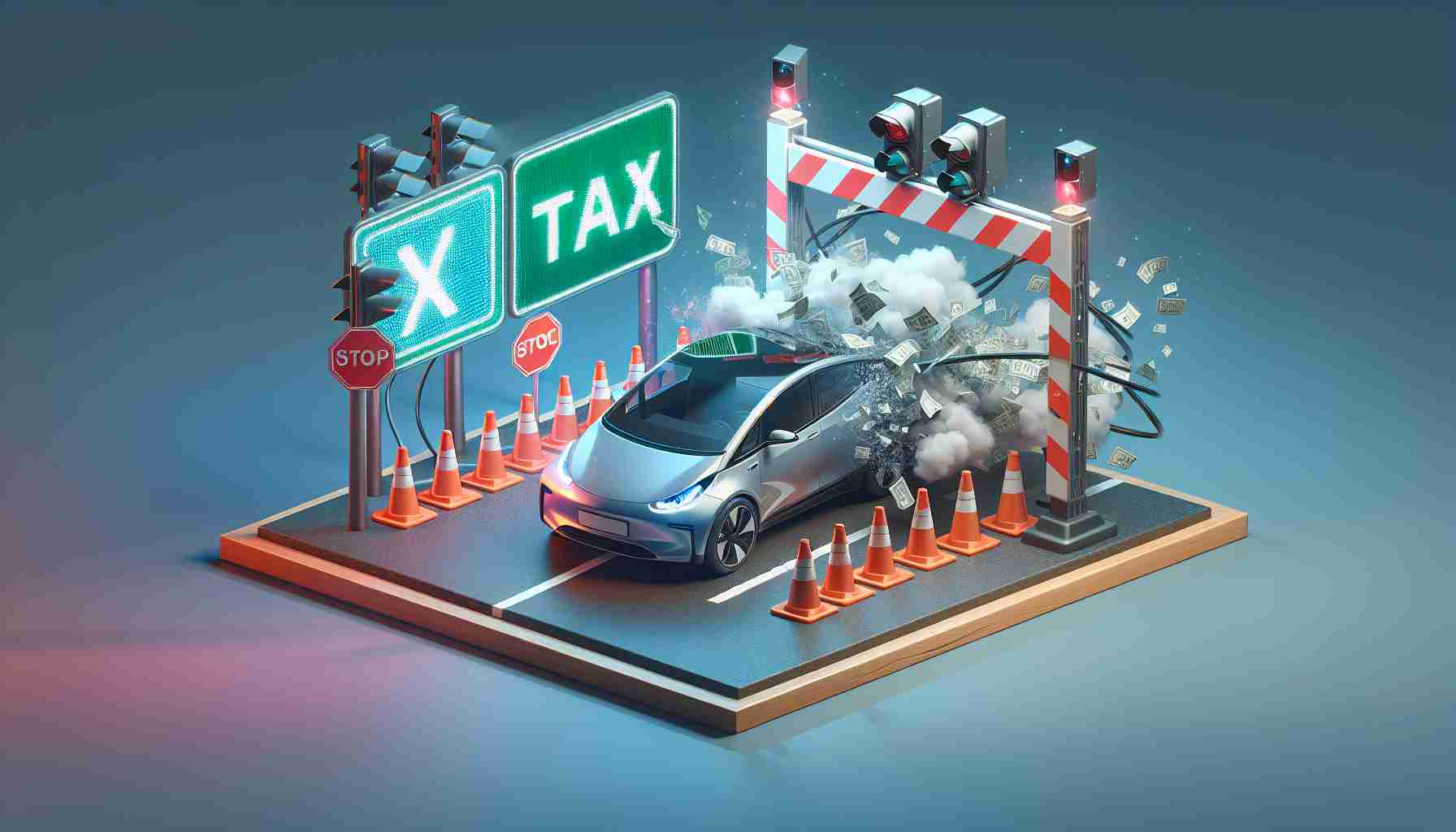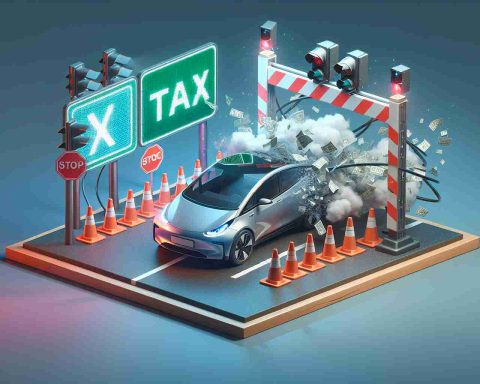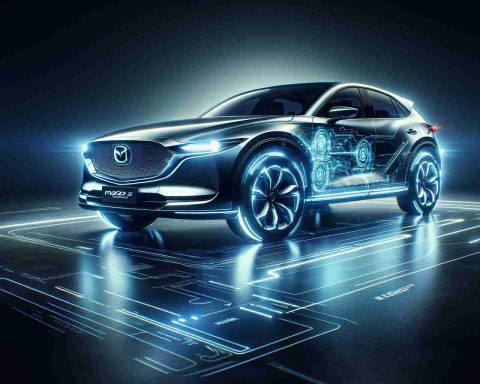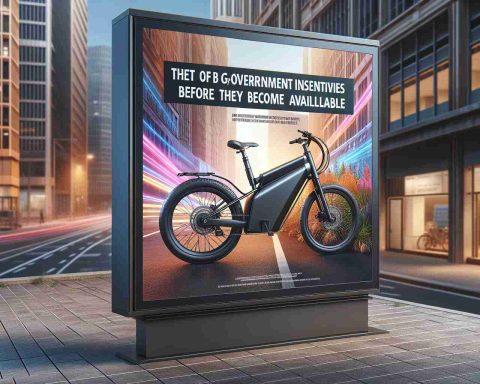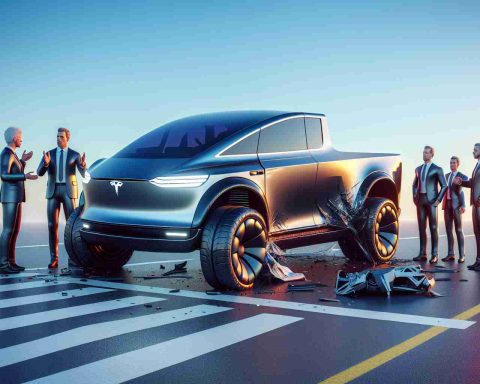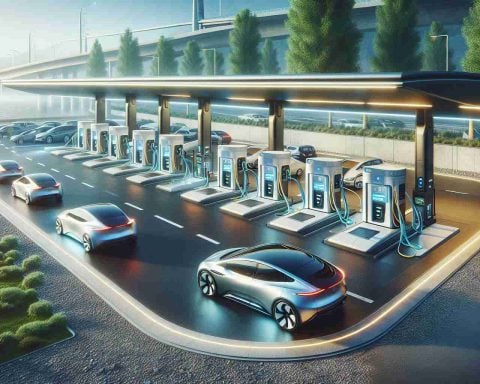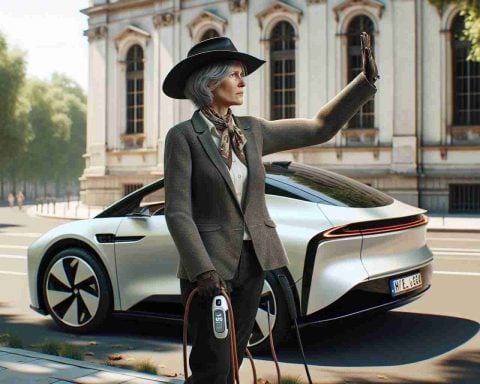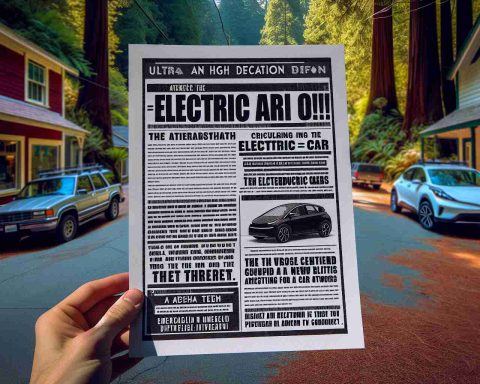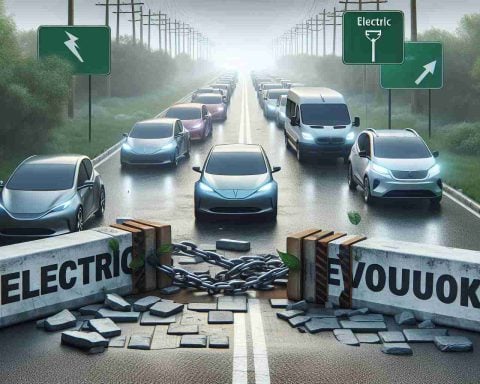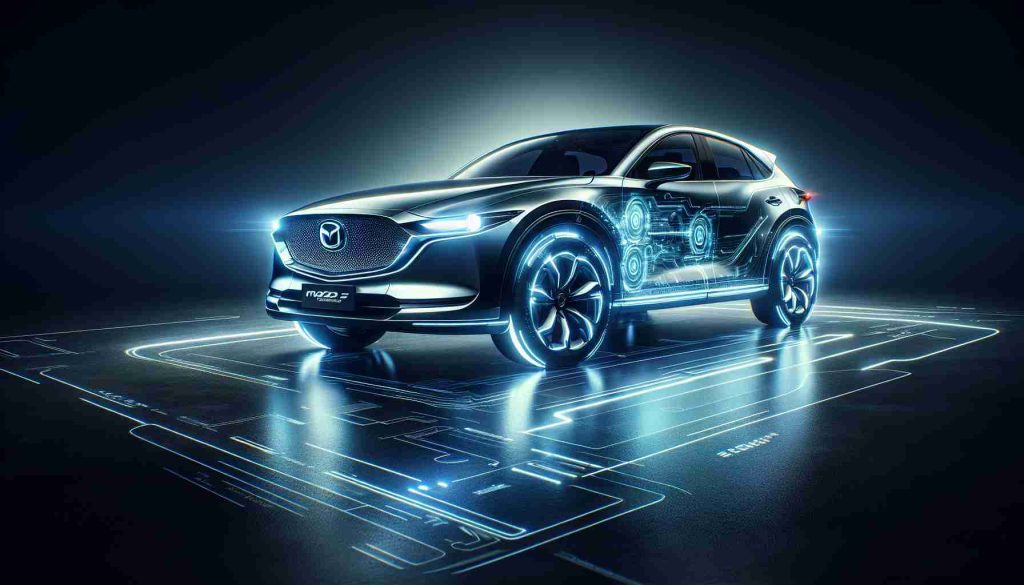- EV registrations in the UK increased by 41% last month, yet fall short of Zero Emissions Vehicle targets.
- Upcoming tax changes in April will add a £410 annual ‘luxury’ road tax for five years on new EVs priced over £40,000, affecting over 70% of models.
- This tax burden could dampen the momentum of EV adoption, impacting both new and used EV markets.
- Only 19% of UK drivers are inclined towards an electric vehicle transition, citing purchase costs and operational expenses as main deterrents.
- Calls for government intervention emphasize the need for incentives rather than additional taxes to promote EV adoption.
- For Britain to succeed in its electric vehicle goals, making EVs affordable should be prioritized over taxing them.
As the once-bright horizon of electric vehicles (EVs) begins to shadow, the perfect storm of financial burdens threatens Britain’s green future. EV registrations showed a strong 41% increase last month compared to the previous year, yet they still fall shy of ambitious Zero Emissions Vehicle targets. This electrifying pace risks losing its spark with the looming tax changes set for April.
Picture this: a sleek new EV, a symbol of modernity and sustainability, cruising silently through morning traffic. Now, visualize thousands more pounds strapped to its shiny frame, courtesy of Britain’s impending road taxes. Starting soon, over 70% of new electric vehicles—those priced above £40,000—will shed their current exemption and face a hefty ‘luxury’ road tax, adding £410 annually for five years. This shift jolts not just prospective buyers but those navigating the used EV market, ensnaring many in a costly loop simply based on an original sticker price.
Despite the allure of cutting-edge technology, a survey signals UK drivers’ hesitancy, with only 19% leaning towards the electric transition. The reasons are as tangible as the tax burden itself: over half cite high purchase costs as a barrier, while others fret about operational prices. The clangor for government intervention grows louder with calls to ax these newly forged barriers in lieu of incentives.
The takeaway is both clear and urgent: if Britain is to charge forward in its pursuit of a cleaner, electric future, it must lighten the load, not add weight. Affordability, not taxation, should steer this green revolution.
Will Britain’s New EV Taxes Derail the Green Revolution?
How-To Steps & Life Hacks for Prospective EV Buyers
Even with increasing taxation, there are savvy strategies you can employ to make your EV ownership more cost-effective:
– Leasing Over Buying: Consider leasing an electric vehicle instead of purchasing. Leasing often results in lower monthly payments compared to a car loan, and you typically avoid some of the depreciation costs.
– EV Incentives and Subsidies: Research and utilize available government grants or subsidies designed to reduce the upfront cost of an EV. For instance, the UK Plug-in Car Grant can provide valuable savings.
– Home Charging: Install a home charging station. While there’s an initial expense, charging at home is generally cheaper per kilowatt-hour than using public charging stations. Check for schemes that offer financial assistance for home charger installation.
– Economical Driving Techniques: Adopt efficient driving habits that can extend your vehicle’s range and reduce energy consumption, such as gentle acceleration, maintaining a steady speed, and using regenerative braking.
Real-World Use Cases
Electric vehicles aren’t just for eco-conscious consumers; they’re increasingly popular within various sectors:
– Fleet Vehicles: Companies are adopting EVs for corporate fleets, reducing their carbon footprint while taking advantage of lower maintenance and operational costs.
– Delivery Services: The logistics and delivery industry benefits from the quiet operation and reduced costs of electric vans, especially for urban deliveries.
Market Forecasts & Industry Trends
The global EV market continues to ascend despite regional setbacks:
– Growth Projections: According to a BloombergNEF report, EV sales are expected to reach 14 million units globally by 2025, capturing more than half of passenger vehicle sales by 2040.
– Battery Technology: Innovations in battery technology, such as solid-state batteries, are expected to reduce costs and improve efficiency, further driving EV market growth.
Reviews & Comparisons
– Budget-Friendly Options: Models like the Nissan Leaf and Hyundai Kona Electric offer competitive features at a more accessible price point than luxury brands.
– Luxury Comparisons: The Tesla Model 3 and Audi e-tron are popular luxury models with differing strengths; the Tesla offers superior range and tech features, while the Audi provides a premium build and interior comfort.
Controversies & Limitations
While EVs offer many benefits, they’re not without challenges:
– Range Anxiety: Despite improvements, some users still worry about the limited range and charging infrastructure.
– Environmental Impact of Production: Critics focus on the ecological footprint of battery production and the sourcing of materials like lithium and cobalt.
Features, Specs & Pricing Overview
– Battery Capacity: Most current EVs offer a battery capacity ranging from 40 kWh to 100 kWh, providing a range from approximately 150 miles to over 400 miles on a full charge.
– Pricing Range: EV prices vary widely, from around £27,000 for entry-level models like the Renault Zoe to over £100,000 for luxury vehicles like the Porsche Taycan.
Security & Sustainability
EV sustainability can extend beyond use:
– Battery Recycling: Active research in battery recycling aims to minimize waste and recover valuable materials.
– Cybersecurity: Companies are investing in robust cybersecurity measures to ensure the safety of connected vehicles.
Insights & Predictions
The EV industry is at a crossroads:
– Policy Impact: Government policies will significantly influence EV adoption rates. Reduced taxes and increased incentives could stimulate market growth.
– Autonomous Integration: With the move towards autonomous driving, EVs are poised to become central to future transportation networks.
Conclusion with Actionable Tips
To navigate the evolving EV market:
– Stay informed about policy changes and incentives.
– Weigh the total cost of ownership, including fuel savings and maintenance, against initial expenses.
– Explore financing options like leasing if upfront costs are a concern.
These strategies will help smooth your transition to an electric vehicle, even amidst changing financial landscapes. For further insights, visit UK Government and stay updated on regulations.
Embracing these insights can optimize your EV experience, ensuring you stay ahead in a rapidly greening world.
